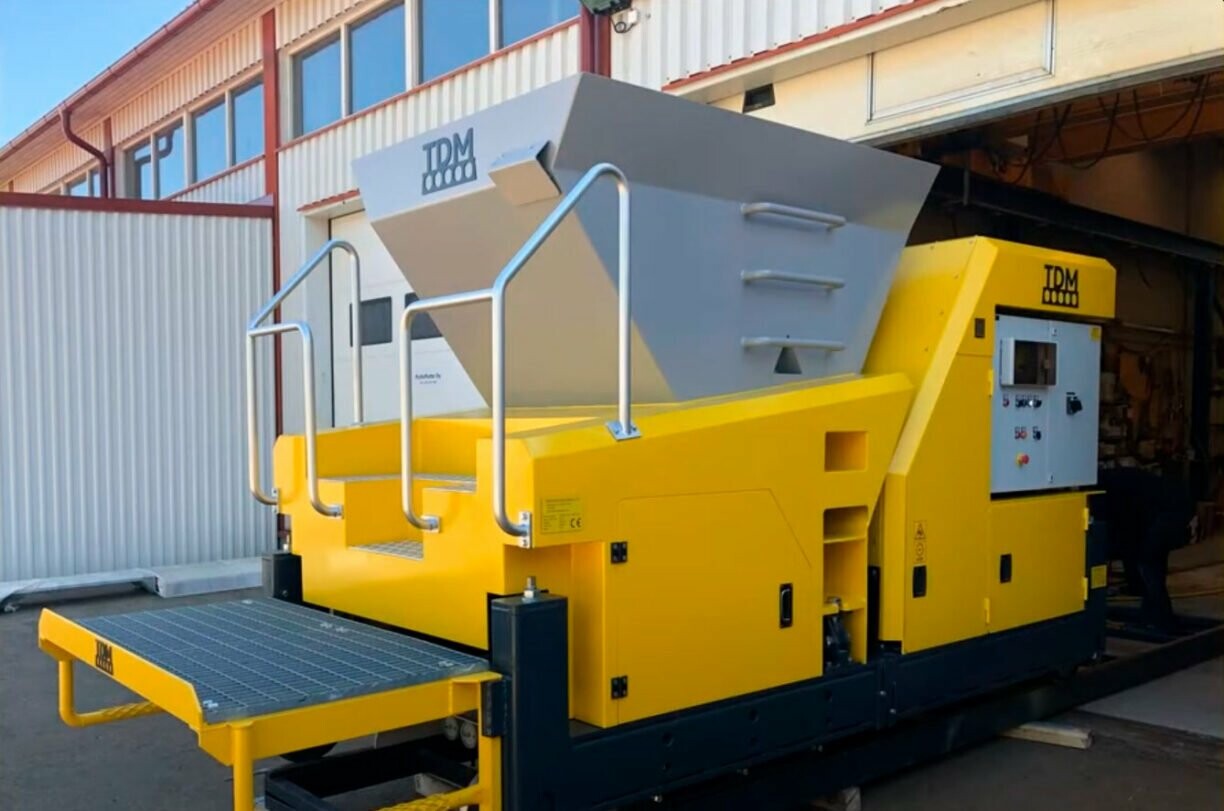Hollow core floor slabs are a key element of modern construction due to their lightness, strength and cost-effectiveness. Their production requires advanced technologies and equipment that help to improve the quality of products, speed up the process of their creation and reduce costs. In this article, we will look at the most efficient methods of production of hollow core floor slabs, focusing on the use of extruders as one of the leading solutions in this field.
Extruders: the main tool for slab production
Extruders are central to the production process of hollow core floor slabs. They are specialized machines that make it possible to create concrete products with high quality, strength and precision. One of the leaders in the production of such extruders is TDM Engineering OY form Finland. Their equipment is characterized by high productivity and the ability to work with slabs of different widths and heights.
Extruders work on the principle of squeezing the concrete mixture through special molds, while forming internal voids that give the slab lightness and reduce material consumption. This reduces production costs and ensures high strength and durability of the finished product.

Advantages of using extruders
Modern extruders have a number of advantages that make them an integral part of the hollow core slab production process:
1. Material saving. By creating voids in the slab, concrete consumption is reduced without compromising the strength of the structure. This is especially important in mass construction, where every cubic meter of concrete is important.
2. High production speed. Extruders significantly reduce the production time per slab, which increases the overall efficiency of the production process.
3. Precision and quality. Thanks to the automated process and independent screw drives, extruders form slabs with a high degree of precision and without defects. Built-in vibrating rails ensure uniform distribution of the concrete mix, which contributes to improved strength properties.
4. Process automation. Modern extruder models are equipped with automatic control systems, which simplifies the operator's work and reduces the likelihood of errors. It also reduces the need for a large amount of labor.
5. Flexibility in parameter setting. The equipment can produce boards of different widths (up to 2400 mm) and heights (from 120 to 600 mm), which makes it versatile for different construction tasks.
Compaction and vibration techniques
The key point in the production of hollow core slabs is the compaction of the concrete mixture. For this purpose, TDM extruders use various vibration systems that operate at high frequencies. Vibration allows to evenly distribute the concrete mass inside the mold, avoiding the formation of voids and sinks, which can negatively affect the strength of the slab.
In addition, vibration systems allow to accelerate the setting process of concrete, which is especially important in mass production, where it is necessary to minimize the time for curing products.
Application of hollow core floor slabs
Hollow core floor slabs are widely used in the construction of residential, commercial and industrial facilities. They provide high bearing capacity, good sound insulation and resistance to deformation. The lightness of such slabs greatly simplifies their transportation and installation, which makes them indispensable in modern construction.
Thanks to the use of modern extruders, such as equipment from TDM, the process of production of hollow core slabs becomes more efficient, faster and cost-effective. These machines can produce high quality products at minimal cost, making them a key element of a successful construction business.
Extruders for the production of hollow core floor slabs play an important role in the modern construction industry. They not only save materials, but also ensure high product quality, which is especially important in the context of increasing demands on the reliability and durability of construction projects.


